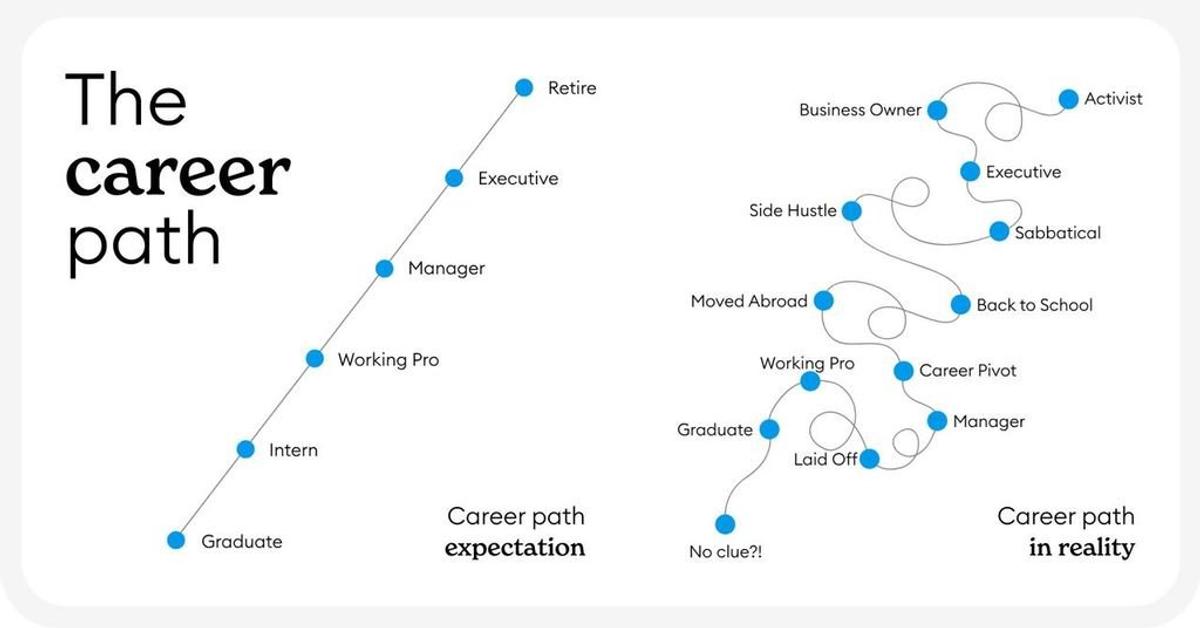Your first job doesn’t define you

Feeling a bit overwhelmed about what comes next after high school? That’s completely normal. If you’re scrolling through endless career websites, feeling like everyone else has it all figured out, take a deep breath. Here’s some reassuring news: your first job is just that—your first, not your last.
Entry-level roles that open doors
Some of the best careers start with surprisingly simple entry-level positions. These roles might seem ordinary on the surface, but they could be stepping stones to extraordinary opportunities.
Customer service roles are brilliant training grounds for almost any career. Whether you’re working in retail, hospitality, or call centres, you’ll develop communication skills that are gold in any industry. Many successful business leaders started behind a shop counter, reception, or on the end of the phone, learning how to read people, solve problems under pressure, and stay calm when things go wrong.
Administrative positions might sound dull, but they’re like backstage passes to how businesses really work. As a junior administrator, you’ll see every department in action, understand how decisions get made, and spot opportunities that others miss. It’s no surprise that many CEOs started in admin roles learning the business from the ground up.
Retail positions can teach you skills that transfer everywhere. You’ll master the art of persuasion, learn to handle rejection (a crucial life skill), and understand what makes customers tick. Not to mention the finer arts of visual merchandising, tracking stock, handling cash and balancing tills. These abilities are valuable whether you end up in marketing, management, or running your own business.
IT support roles are perfect entry points into the tech world. You don’t need a computer science degree to start troubleshooting problems and helping colleagues. Plenty of successful software developers and cybersecurity experts began by simply being the person everyone asked for help when their computer wouldn’t work.
The beauty of changing direction
These days most people don’t stick to their first career choice. In fact, the average person changes careers multiple times throughout their working life. In fact recent studies show that people stay in the same job for an average of 2 years 9 months. Which means that unless you win lotto or are super successful and retire early – you’re likely to have around 16 roles by the time you retire (assuming that you’re working for the average 45 year span).
Ask people around you about their careers. You might be surprised to learn that your maths teacher started as an accountant. Or a successful marketing director began their career as a nurse. Remember career paths are rarely straight lines anymore, and most people will change direction, get opportunities, encounter hurdles, and end up in places they didn’t expect.
Source: BoxPlay
Adaptability and flexibility are superpowers in today’s job market. Employers value people with diverse experiences because they bring fresh perspectives and unexpected solutions. That customer service experience? It makes you a more empathetic manager. Those admin skills? They help you streamline processes in any role.
Skills that travel with you
Every job teaches you something valuable, even if it doesn’t feel like it at the time. Your weekend job at the local café isn’t just about making coffee—you’re learning time management, working under pressure, and dealing with difficult customers. Your gaining human and transferable skills that will serve you throughout your career.
Communication skills develop naturally when you’re interacting with colleagues and customers daily. Problem-solving abilities sharpen as you handle unexpected situations. Time management and the ability to prioritise improve when you’re juggling multiple tasks. All these skills become part of your professional toolkit, which you’ll never stop expanding on.
The earning and learning advantage
If you’re unsure about your next steps, or would prefer to start work straight after school, great. That option has advantages over going straight on to further studies or taking a gap year. You’ll be earning money and gaining real-world experience, as well as building your professional networks from the get-go. Then at any point if you change your mind, it’s never too late to dive back into education – you could even do it part time while you continue working. Or step away for a gap year to reassess your next steps or try something new.
This doesn’t mean university is wrong, it’s just a different path. Some careers require that you have a degree, but many successful people built their expertise through experience rather than lecture halls. The key is choosing the route that suits your goals and learning style.
Upskilling is always an option
One of the best things about starting your career early is that you can always add qualifications later. Many employers offer training programmes, apprenticeships, or will support you through part-time study. You might discover a passion for digital marketing while working in retail, then pursue a qualification in that area. Or you could find that your IT support role sparks an interest in cybersecurity.
Online learning has made upskilling easier than ever. You can study in your spare time, often for free or at low cost. Professional qualifications, short courses, and industry certifications can boost your career prospects without requiring a full-time commitment to study.
Your career is a marathon, not a sprint
Remember, building a career is a long-term project. You don’t need to have it all sorted by age 18. Some of the most successful people took years to find their true calling, and that’s OK you’ll still be picking up valuable skills and experiences along the way.
Take the first step with confidence
Your first job doesn’t define your worth or determine your future. It’s simply the beginning of your professional journey, the chance to start earning, learning, and exploring what the working world has to offer.
Whether you’re drawn to hands-on work, people-focused roles, or technical challenges, there are entry-level positions waiting to welcome you. The key is to stay curious, work hard, and remain open to unexpected opportunities.
Find your perfect starting point
Ready to explore your career options? Our career exploration tools can help you discover roles that match your interests and strengths.

